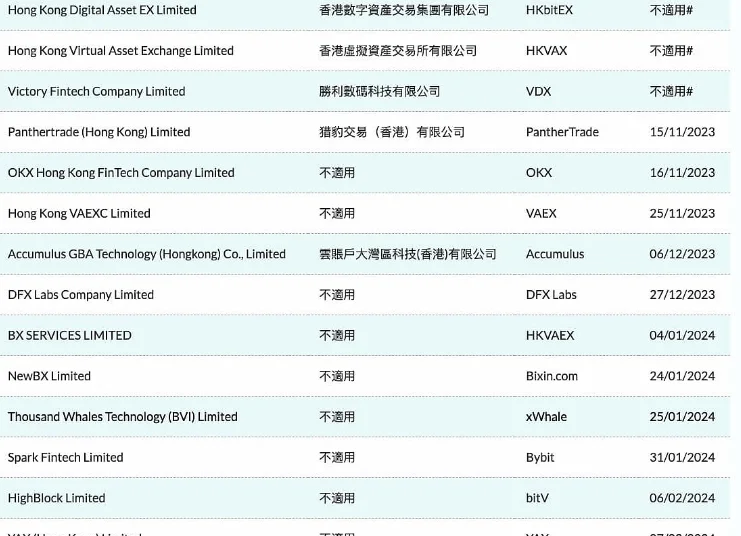The Hong Kong Securities and Futures Commission (SFC) has received 18 applications for crypto virtual asset trading licenses from domestic and international bodies in over two months.

Hong Kong SFC granted Huobi HK, the Hong Kong subsidiary of the Huobi cryptocurrency exchange, a license to operate a trading platform for virtual assets on February 20, according to a local report. DFX Labs, Crypto.com, OKX, Bybit, and 18 other cryptocurrency exchanges submitted applications for the same license beginning in mid-November 2023.

Applicants for licensing must complete rigorous due diligence assessments, which may include a comprehensive financial audit surpassing the scope of proof of reserves. Web3 companies must invest up to $25 million to develop their applications for these licenses.
Furthermore, traditional brokerages, including the Chinese stock brokerage Tiger Brokers, have been drawn to Hong Kong by the recent clarity surrounding exchange licensing. The brokerage enhanced its Type 1 SFC license in January to permit cryptocurrency trading for Hong Kong-based professional investors and financial institutions.
At the time, John Fei Zeng, director and chief financial officer of Tiger Brokers, stated to Cointelegraph:
“Other than stocks and options, crypto is becoming an important asset class. It’s hence a natural extension of business as a broker-dealer to add a new asset class, and the underlying Web3 technology is also integrated with Tiger’s fintech background.”
On January 26, Harvest Hong Kong, a prominent fund manager in China, submitted the initial application to the Hong Kong regulator for a spot in the Bitcoin exchange-traded fund.
Hong Kong has established a minimum insurance requirement of 50% for licensed cryptocurrency exchanges that manage their client’s assets as the city prepares to adopt cryptocurrencies.
As OSL Exchange disclosed, the minimum insurance coverage requirement of 50% applies to all assets held in custody. Simultaneously, OSL announced that it had entered into a two-year collaborative agreement with Canopius, a syndicate of underwriters affiliated with Lloyds of London, to provide insurance coverage for 95% of the assets owned by its users.
